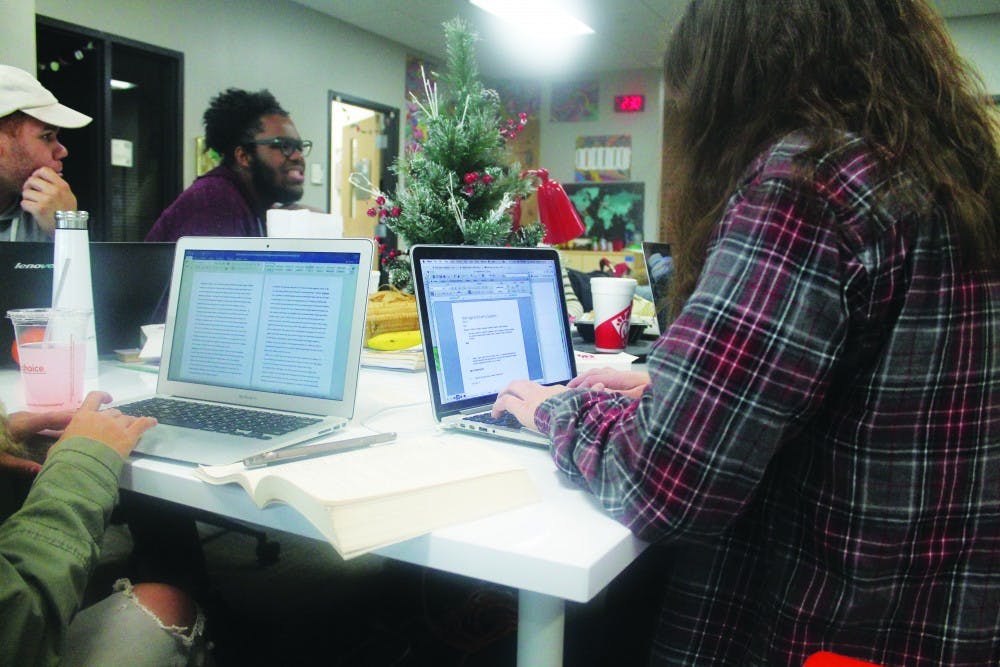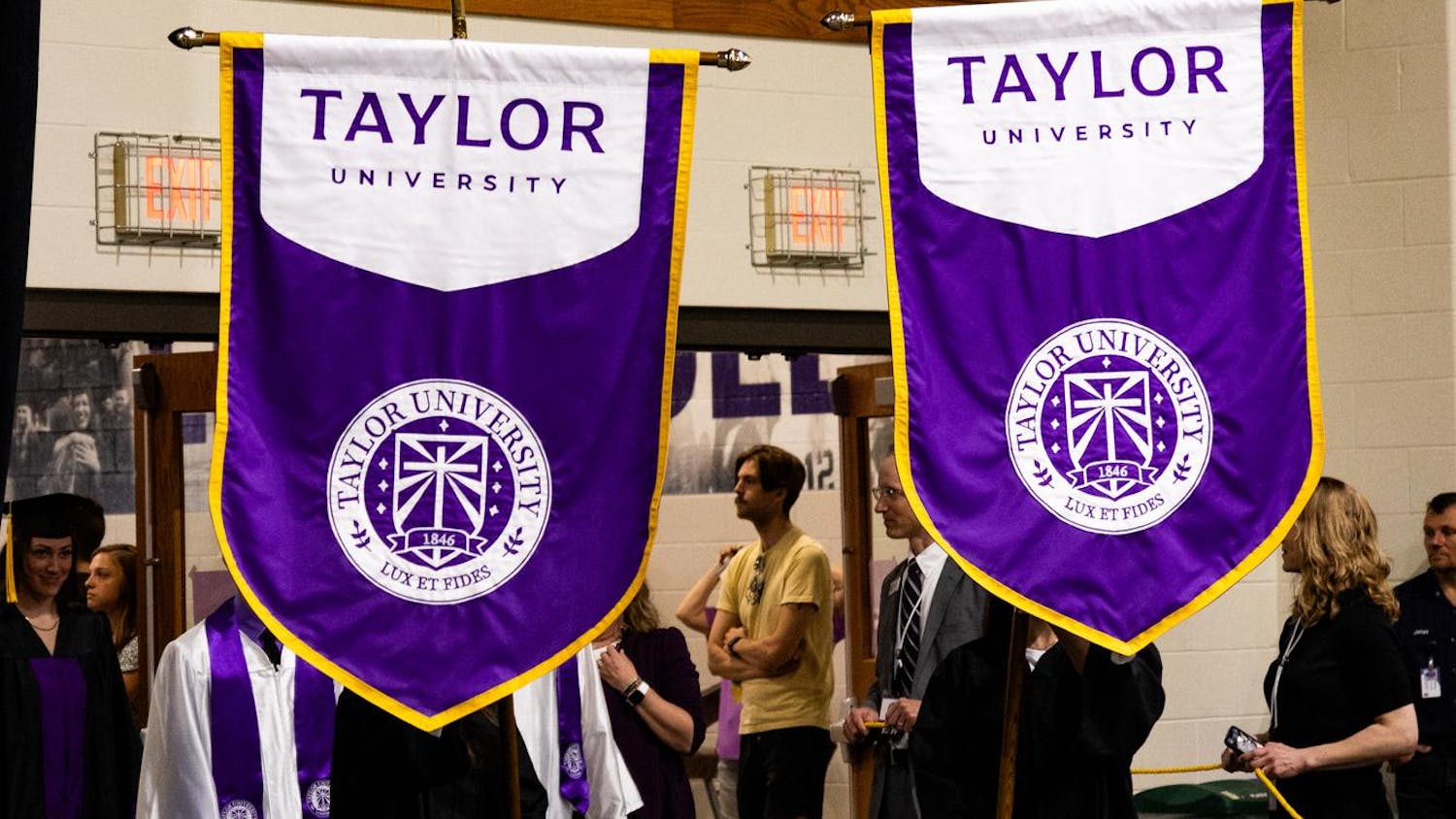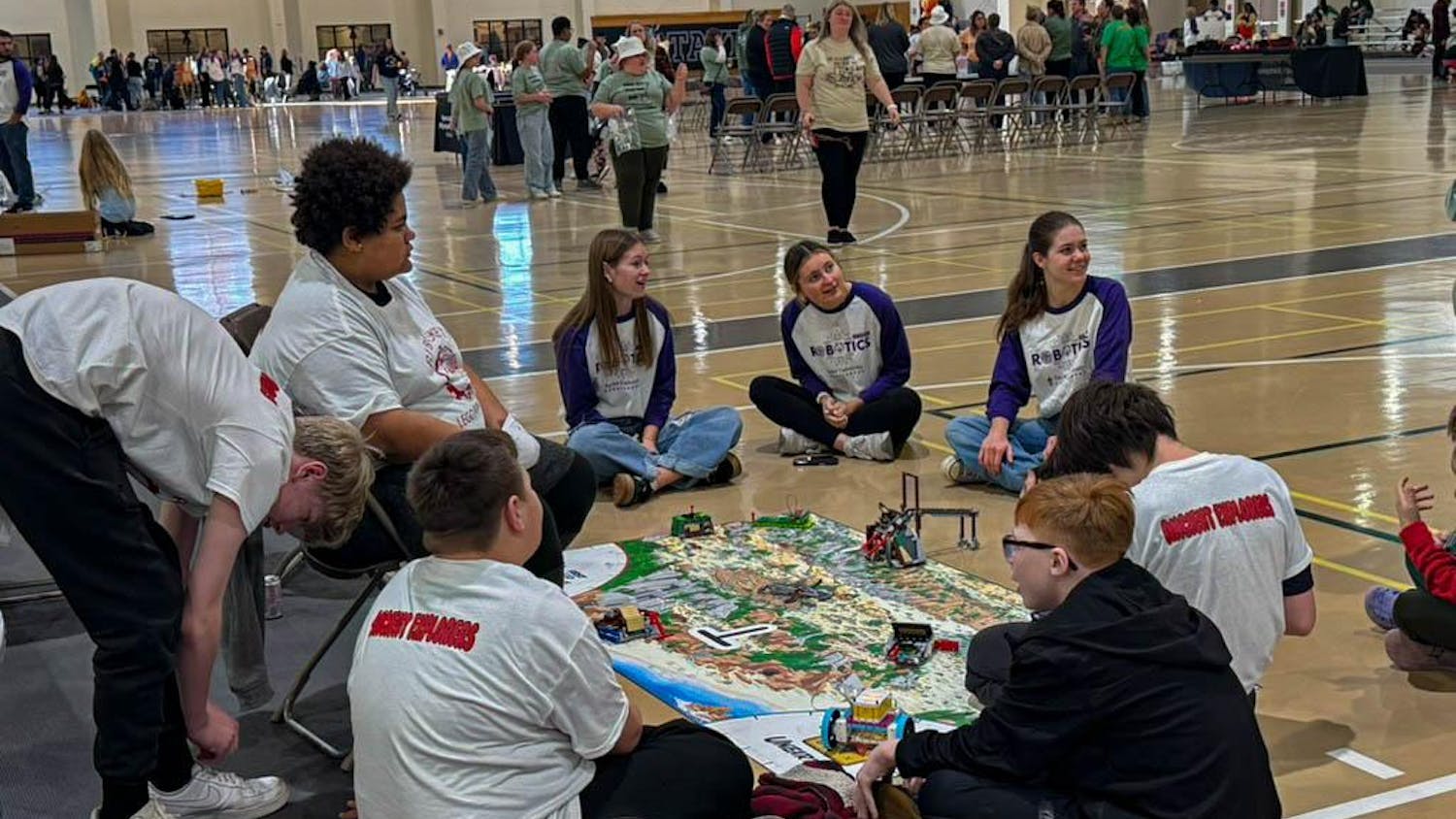By Hope Bolinger | Echo
Make a Google docs study guide and collaborate. Carve out two hours at Starbucks to flip through flashcards. Scan through Quizlet and pray some gracious predecessor provided a study set for your specific class.
These make up a handful of the ways students advise each other on exams. But, what if Taylorites received guidance for finals through the most abundant source: the professors? The following is help for exams from teachers:

Greg MaGee: Professor of biblical studies
It's easy to shut down early in anticipation of Christmas vacation. Don't let up the effort! Work in groups to help keep the motivation level high. Make sure you understand each question on the study guide, and don't hesitate to reach out to me if something is unclear. Study diligently in the days leading up to the exam, but try to relax right before the exam (last minute cramming can be counterproductive if you feel frazzled going into the exam).Andrew Draper: Professor of theology
Do not wait until the night before to study. Go back and review your notes and class lectures from throughout the course. If the professor has given you a study guide, open an electronic copy of it and type the answers directly into the study guide so that you can use it as a resource for studying. If allowed, work in groups of students so that you can help each other understand difficult concepts. Always feel free to ask a professor for clarification about aspects of the information you don't fully understand. If you start early and work in this manner, you won't have to stay up all night or skip meals to study. That way you will be rested and ready.Patricia Stan: Professor of Chemistry
Start now. Go to class, listen and participate, this is an easy way to start studying for your final. Faculty try to cover what is most important in class. Get enough sleep - you are sharper and will learn in less time if you are well rested. Do the most important things first, read the chapter and get an overview of the terms and concepts before you spend a lot of time trying to do that one calculation that will only appear in one or two questions on the final. Work with a friend and say the content out loud. Saying something and forming sentences with meaning about it stores it in your brain in a different way than just reading. This will help with recall and applying information to new problems.Brad Seeman: Professor of philosophy
The best advice I could give is probably not what you're looking for: Stay up with the material throughout the semester, and seek help early on if you're "fuzzy" about anything in the course. Review periodically. If you've done that, keep it up and make wise choices about sleep, exercise, food, and relationships, you'll be fine.Zack Carter: Professor of communication
First: Don't fall into the trap thinking a Red-Bull all-nighter cram session will do it for you (this has been shown to actually have adverse effects--i.e. poor grades). Instead, snowball study. That is, break down your studying into increments (let's say over the course of one week), and then cover new material each day while also reviewing content studied the days prior. This will help with memory and recall.Second: Attend the final exam review day in class. Though the review games get a little loud and competitive at times (maybe due to the fact the rules are always changing), this day will provide you clear insight, clues, and hints of what to expect on exam day.
Third: Limit (or refrain altogether) your smartphone and social media usage while studying. Stir crazy with FOMO? It's okay, you're not missing out. Leave your smartphone in your room, and log out of your social media so you can effectively digest course material.
Fourth: Leave your smartphone in your room on exam day. Leaving it in your pocket, backpack, or purse while you take the exam may be an actual mental hindrance to your ability to focus.
Fifth: When all else fails, before class, strike a power pose! Seriously (if you've had a class with me, you'll understand). Standing in place for one to two minutes with your arms in the air or on your hips have been shown to increase testosterone (dominance hormone) and decrease cortisol (stress hormone) levels.
Finally: Find time for rest interpersonally with others, intrapersonally with yourself, and most importantly, find time to rest spiritually in Jesus Christ. He has you precisely where He wants you in time, even at your desk taking my final exam.
Jeffrey Sherlock: Professor of business
My #1 piece of advice is "don't cram." I recommend reading the textbook thoroughly and highlighting the relevant points. Then, when you are reviewing (not cramming) for the final exam you can skim over the highlights in the textbook. It is also good to review your notes from the class as well as any powerpoints the professor has made available during the semester.Michael Jessup: Professor of sociology
I tell students to be creative, try to learn something and make sure I can tell you can demonstrate your ability to wrestle with challenging issues and questions. Then we eat together, preferably something with bacon!Hadley Mitchell: Professor of economics
For my upper-divisional courses, I prepare a list of discussion questions, which is distributed on the first day of classes. This gives all potential test questions that may be asked either on the three tests given during the semester or on the final. That way, 1) individuals know what to focus their studying on, and 2) study groups tend to form comprised of students within the class to quiz each other on those questions. Thereby, 1) they are verbalizing the answers to each other, and 2) listening critically to each other's' answers, which might give a different spin on understanding the material. For the final, I select 10 of the evenly numbered questions from this set of questions representing what has been covered throughout the semester. This gives the students direction on what to study for the final.For the entry level courses, the last day of the scheduled class, rather than covering new material, I list all potential topics that might be covered on the final. Again, I give them an expectation of what to study.
Rachel Smith: Professor of art
The most significant advice I can give is to study over a period of time instead of waiting to do it all at once right before the day of the exam. Students need to plan their work for Final Exam Week because they have a major test or other piece of work to present in most if not all of their classes in those few days. And sometimes those things are concentrated in a couple of days instead of being spread out over the four days. I often see students who have done very well throughout the semester perform less well on the Final Exam because they have not planned for this difference. In the Fall semester, it's also important for students to factor in how to get their work done in the midst of all of the holiday events and end of semester activities. It's hard to say "no" to those things. But sometimes it necessary to maintain the priority of finishing their academic work well. This makes planning their time essential. Sleep is essential, of course, but it's also really important to eat well so you maintain your energy and focus. When I have an 8 a.m. exam, I often bring some breakfast treats to class because so many students haven't eaten before they arrive.Mike Guebert: Professor of earth and environmental science
As always, begin early; do not cram. Study within an intentional community; that is, work with a small group to prepare detailed study notes on separate sections, then share your notes and explain them to each other.Peter Krenzke: Professor of mechanical engineering
The best way to prepare for final exams in my courses is to be engaged in class, take good notes, and complete the assigned work throughout the full semester.Kory Browder: Dance Instructor
With studying for a dance final, participation and attendance throughout the semester are the most important. I always tell my students when they do not follow through with dedication in a class like ballet, they aren't hurting me, but only themselves because a physical art form such as ballet, or dance in general, comes with practice and muscle memory. I also recommend to sleep when they can, eat healthy, and drink water! I know caffeine is a necessity for some when studying, but keeping hydrated and having plenty of H2O will keep your body just as alert and functioning well.Bob Aronson: Professor of public health
In Intro to Public Health and Global Health there is no reason why students should do poorly on the exam. They have seen every question or discussion prompt before, and have even been asked to do 1-2 minute writing tasks on many of the essay questions in class. There is a mix of content or definitional questions along with conceptual application questions. The best way to do well on the exam is to be engaged in the class all semester and get a good night's sleep the night before the exam.Mike Severe: Professor of Christian educational ministries
Review notes daily. Ten to twenty minutes every day, immediately after hearing a lecture, is far more effective than cramming. Drink lots of water finals week and take a little sugar before the test. I actually bought a case of Sweetarts when I was in college for this purpose. Get in a study group, you will study longer and fill in gaps you missed.No all nighters! The brain actually "codes" information learned while sleeping. If you skimp sleep you will lose much of your study.




